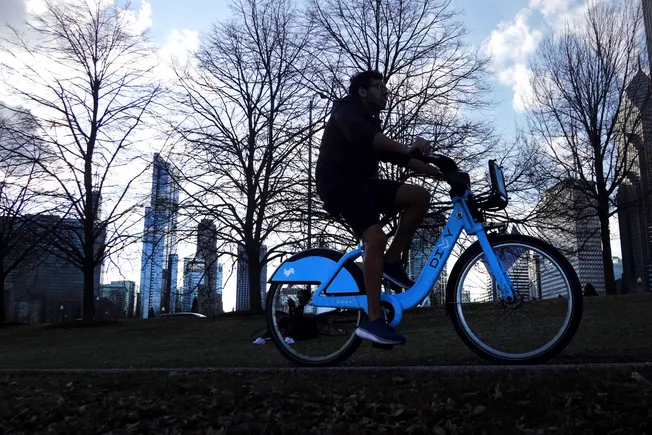Key Takeaways
- Chicago and Lyft announced improvements to the “Divvy” bike and scooter share system, including reduced annual membership fees and an increase in docks.
- Divvy achieved a record 11 million trips in 2024, signaling a growing preference for micromobility options.
- Adjustments include the removal of unlock fees in equity-focused areas and the expansion of bike-riding lessons for all ages.
Chicago’s Divvy System Enhancements
Chicago’s shared micromobility program, Divvy, is set for significant enhancements following a record year in 2024, where over 11 million trips were taken. Lyft operates the bike and scooter share system, and this month, both the city and Lyft shared details on upgrades aimed at increasing accessibility and affordability.
To make the service more appealing, the annual membership fee will be reduced from $143.90 to $99 for new and lapsed members, while current members will maintain the previous rate. An effort to enhance service in underserved areas includes the removal of unlock fees for non-members in designated equity zones, primarily located in the city’s South and West sides.
In addition, 750 new docking stations will be introduced in downtown Chicago, expanding access for both residents and visitors. Notable improvements include the Divvy station at Navy Pier, which has increased from 47 to 72 docks, solidifying its status as the city’s most utilized station. David Powe, Assistant Commissioner for the Chicago Department of Transportation, highlighted its importance for locals, tourists, and commuters alike.
Mayor Brandon Johnson emphasized the city’s commitment to equitable transportation in a statement, noting that the enhancements reflect a wider vision for sustainability and equal access across neighborhoods. “Together, we are paving the way for a Chicago that prioritizes sustainability, equity, and opportunity for all,” Johnson stated.
The Chicago transportation department is also offering bike-riding lessons tailored for both children and adults. These adult courses range from beginner level to advanced sessions that focus on safe navigation, understanding bike lane designs, and planning routes through city streets.
Alex Nelson from Better Streets Chicago praised the improvements, asserting the vital role of Divvy in a comprehensive transportation system. He expressed hope that the momentum would continue as more Chicago residents seek out alternatives to traditional car travel.
Overall, these changes portray a determined push towards enhancing urban mobility and fostering a more integrated community approach to transportation in Chicago.
The content above is a summary. For more details, see the source article.















